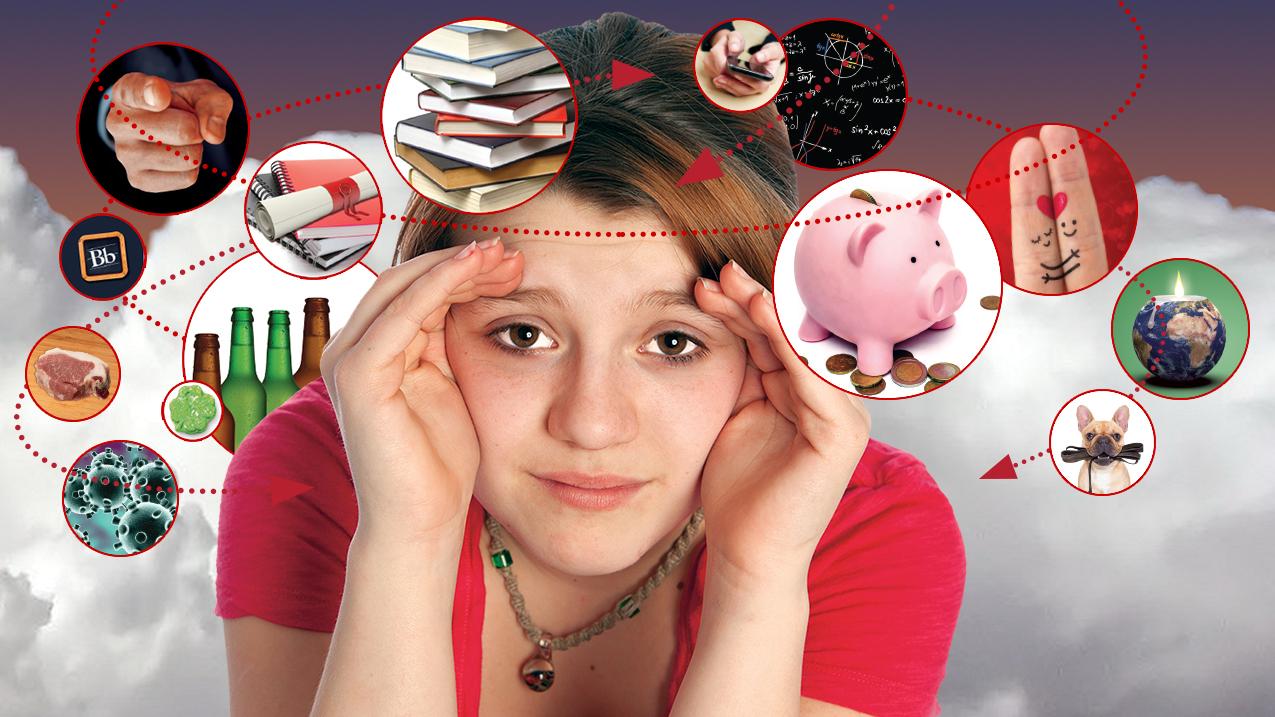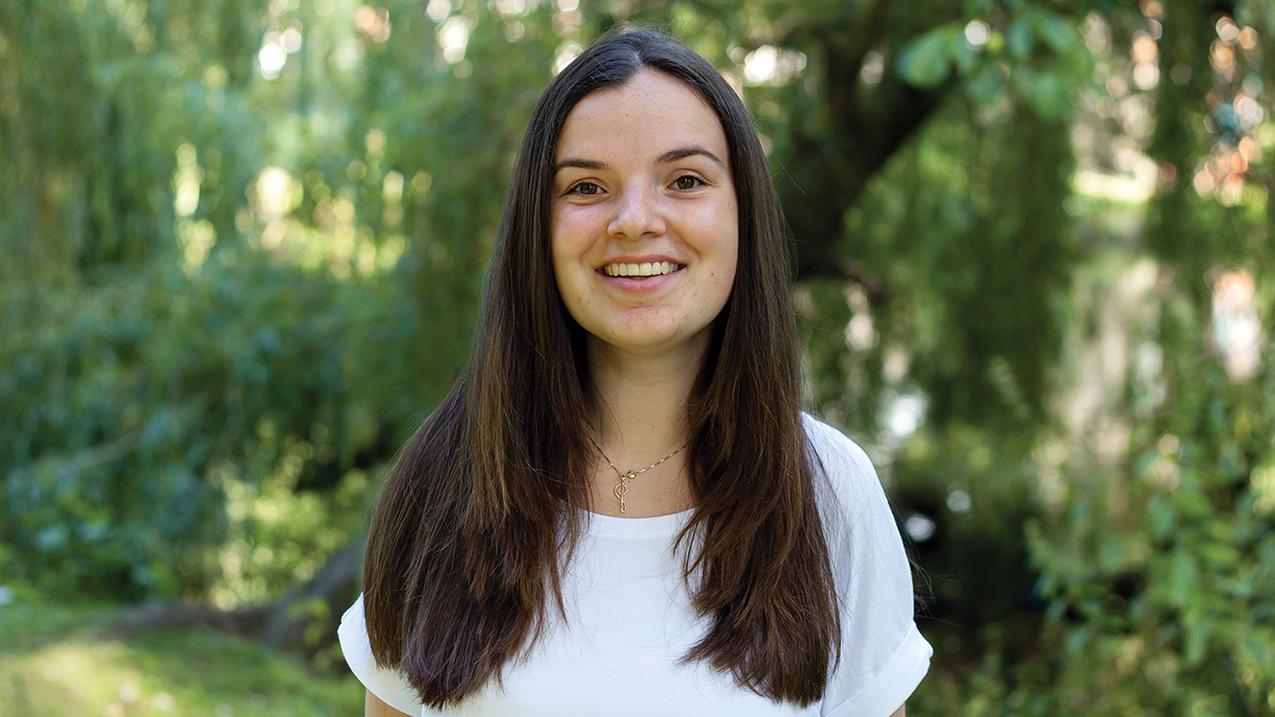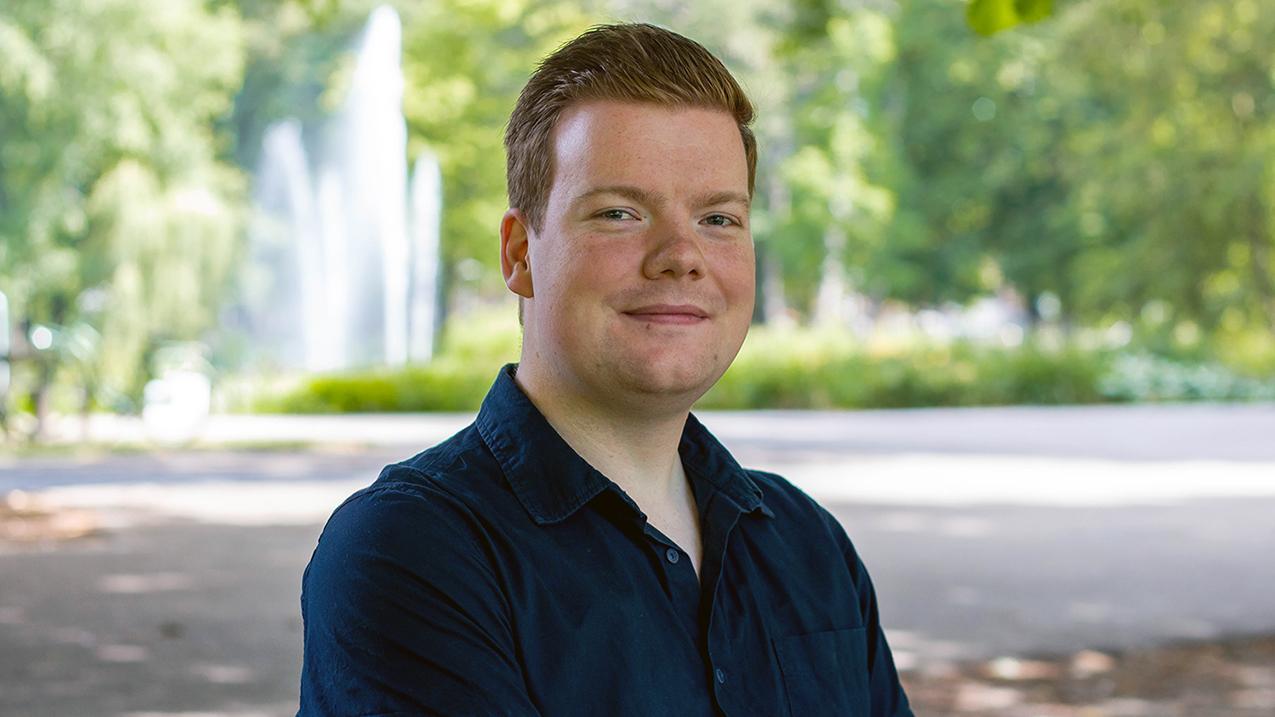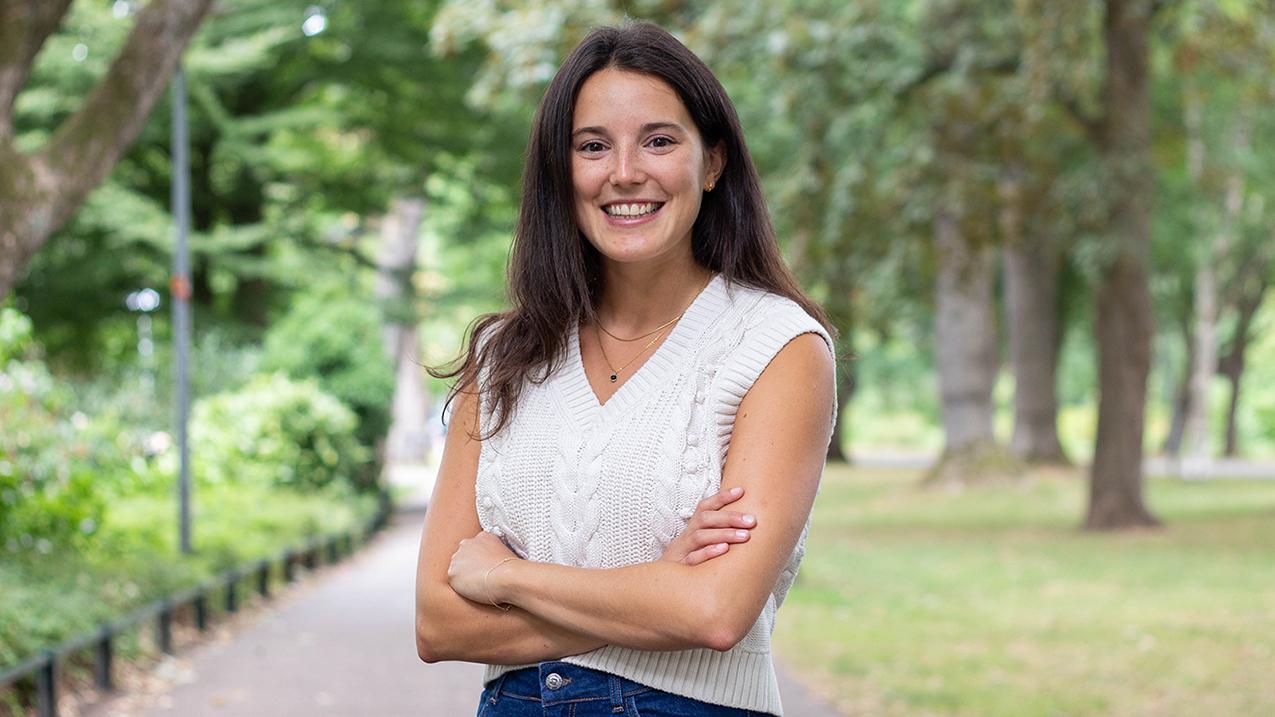Expectations galore
'Students should know why they're doing what they're doing'

Adem, the Dutch word for "breathe". That’s the name of one of the workshops UU offers its students. It might sound like it has something to do with yoga or mindfulness but its creator, assistant professor Annerieke Oosterwegel, is not a fan of simply battling the symptoms of stress. The workshop's title is actually an acronym for Autonomie Duurzaam Eigen Maken, which can be loosely translated as "creating your sustainable autonomy". It is, therefore, meant to help students become consistently more confident.
One of the lessons students learn in this course is that what they assume others think about them is often wrong. Oosterwegel: “Students are asked to conduct 360-degree interviews with their parents and friends and this almost always makes them feel much more positive, sometimes even soothed enough to become almost zen. We also know from scientific studies that young people tend to think that their parents are very critical of them when that's usually not true."
It's often the desire to meet other people's expectations that leads students to develop psychological issues, observes Oosterwegel. Young people tend to internalise the values and standards of the people who matter to them, which can lead to clashing self-images, according to Adem's course manual. Students clash with the person they think they ought to be, for instance when they can't be disciplined enough to study for an exam.
A generation of zombies
That's something we hear everywhere: "students are struggling with their mental health". Last year’s Student Monitor, a joint venture by the National Institute for Public Health and the Environment (Dutch acronym: RIVM), Trimbos Institute and the Municipal Health Services (GGD), showed that half of all college students in the country struggle with mental issues like anxiety and depression. In addition, many students suffer from stress, pressure to perform, loneliness and trouble sleeping. Dutch society started to pay more attention to college students' psychological problems during the pandemic, when many of them felt lonely or alienated from the university and from other students. Nuffic, the Dutch organisation for the internationalisation of education, reported that the issue was even more severe among international students, as they often don't have a family or social network to lean on. As a result, the Ministry of Education earmarked some money to tackle the psychological consequences of the pandemic. The so-called National Education Programme aims to alleviate some of the damage done by the coronavirus to the Dutch educational system.
But even before Covid, researchers from the Windesheim University of Applied Sciences had already alerted about higher education students' mental health back in 2018. UU student Rhea van der Dong, then president of the National Student Union (ISO), warned about “a generation of zombies”, stressing that many students were having suicidal thoughts. After that, Utrecht University created a task force on student wellbeing. One of the things this task force has done is organise the Wellbeing Week.
The pressure to perform and the desire to meet expectations (their own as well as those from others) are recurring topics when it comes to young people's mental health. Research by Statistics Netherlands shows that 73 percent of university students struggle to meet their own expectations, while 40 percent of young people feel pressured by others. Notably, this perceived pressure increases from one's teenage years on and it becomes higher the more years of education someone has. Another finding is that women tend to feel more pressure than men.
Climbing the social ladder
Statistics Netherlands also shows that young people feel the most pressured by society and their parents. “Lately, there's been more and more emphasis on performing and excelling,” write Marloes Kleinjan, a Professor in Youth Mental Health Promotion at UU, and Anita Kraak, from the Dutch Youth Institute, in an essay for the Trimbos Institute. “The implicit expectation is that excelling will lead to personal happiness and societal success.”
But things haven't always been this way. In his book Fokking Druk ("Fucking busy", Ed), author Thijs Launspach says that success used to be more related to one's social-economic background. Climbing up the social ladder was practically impossible. The Dutch even have a saying that goes "if you're born a dime, you'll never be worth a quarter". But, today, people are judged on their achievements. “It is possible to climb the social ladder now. We can become a quarter so we think we should become a quarter or even a full dollar if we manage to pull that off,” Launspach explains. This focus on individual success has contributed to forming a competitive society in which there is less support among peers, write Kleinjan and Kraak. There isn’t as much room anymore for experimenting and making mistakes even though that's what learning and developing oneself is all about. Everyone internalises this mentality, young people included.
As a result, more young people get stuck between their own needs and the high standards set by school, society, their parents, their jobs and their friends, according to Kleinjan and Kraak. And that’s before they even step into a lecture hall. Then, they get to the university, an environment that is highly focused on achievements. They have to get good grades and enough credits, not to mention other things that future employers might expect to see in their CVs.
Consequently, many students make quite unrealistic demands of themselves, which can increase their chances of developing burnout syndrome, according to a recent study by UU scientists. The study was part of How are UU?, a project aimed to improve the mental health of those studying at UU at the Master's level. A third of the respondents experience mental health symptoms.
The ideal image
DUB spoke with three students about this topic and the conversations evidenced how different expectations can sometimes get students stuck. Pascal, a student of Artificial Intelligence, “ran himself ragged” because he wanted to party with his friends and get good grades at the same time. He had the image of the ideal student in his head: “You always have to do the best you can, keep working hard, get good grades, and participate in all classes.” It was a harsh wake-up call whenever he didn't manage to do that. Shouldn’t he be able to “handle” university?
Leanne, a former student of Educational Sciences, was planning on attending a university of applied sciences after graduating from high school but classmates and school counsellors kept telling her that not going to a research university (which is considered a higher level in the Netherlands) would be a shame given her good high school grades. Later, when she quit UU altogether because she barely had any time for other things she liked, she had to justify her choice to others.
Angela, a student from Spain, feels like people back home expect her to travel back to Spain as much as she can. But she’s since built a life for herself in Utrecht, so she sometimes feels as though she's not able to spend enough time with her new friends.
Relieved
With so many expectations coming from all sides, it can be hard to decide what to focus on. Annerieke Oosterwegel hears all too often that students are stressed out by all the options to choose from. “Sometimes I ask students how many circles of friends they’ve got. Sometimes, the answer is as high as fifteen. And each of them expects something else from you.”
“You simply have to choose and choosing hurts,” the assistant professor adds. That's why her course, Adem, aims to help students discover what truly matters to them and what their own standards and ambitions are. In addition, she wants to make them realise that stress and pressure sometimes are just a part of life. “If you know why you’re doing what you’re doing and what you’re doing it for, you’ll be more confident in the choices that you always have to make. Students who participate in the course often say they feel relieved.”

‘You're going to a university of applied sciences? What a pity’
After high school, Leanne Terbeek (23) decided to attend a university of applied sciences even though her grades were good enough to get her into a research university. Her classmates didn't understand her decision at all and school counsellors kept asking her if she was sure.
“It’s always been a struggle for me to find my way in a society that’s so focused on achievements. When I decided to go to a university of applied sciences to study Educational Sciences, people kept telling me it was a shame. Going to a research university really is the norm.
“After a few months at the university of applied sciences, I started missing a theoretical background, so I enrolled in UU to study Educational Sciences there. But then I didn’t have any time left for the things I like. I enjoy being creative, for instance, and I like to sing. Once at the university, I missed studying the practical aspects of things.
The reactions to my decision to quit yet another programme sparked a variety of reactions. 'Don’t you want to learn?', some people asked. But, thankfully, others said: ‘You’ll find something else in your path.'"
“I’ve since started my own creative business, ‘Without Lines’, which makes me very happy. I’ve got the freedom to discover what I’m good at and what I like. Apparently, higher education isn’t the only road you can take.”

‘Quitting the university made me feel like a failure’
Pascal Verkade (24) is almost done with his Master's in Artificial Intelligence at UU. But the first year of his Bachelor's, in Delft, did not go as he'd imagined.
“When you get to college, you feel like, from that moment on, you’re on your own. That’s what they tell you: 'from now on, you’re responsible for everything'. That's why I didn’t think to ask for help when things weren't working out.
“I also had this image of the ideal student in my mind. That student works hard, gets good grades, and goes to all classes. But he also makes the most of his social life. So, I was always the last one to leave parties and the first one to get to class in the morning. I ended up running myself ragged.
“When I decided to quit the Technical IT programme in Delft because I wasn’t sure whether I would even make it, I felt like a failure. I didn’t meet my own expectations, nor those of my parents and friends. Now, in hindsight, I know I didn’t allow myself to search for what I really wanted.”

‘I just want to do everything’
Angela Pelissou Ayuso (25), from Barcelona, is pursuing a Master's in Bioinformatics & Biocomplexity. She came to Utrecht during lockdown.
“I was expecting to meet lots of new people abroad but the introduction week was online. I felt so alone.
“It wasn’t always clear to me what lecturers expected of me. Once, when I asked for extra confirmation on something, my coordinator said: ‘I’ve already said it. Why are you asking it again?’. Dutch people are very direct and that can be quite shocking sometimes.
“Thanks to previous exchanges, I've discovered that mastering the local language really helps you to get to know the local students. So, I dedicated one night a week to learning Dutch. I also exercise three times a week, work two days a week, and I've got a busy social life. I just feel like I have to do everything right now, just in case the pandemic situation changes.
“By now, I feel completely at home in Utrecht. At the same time, I feel this constant pressure from my Spanish friends to go back to Spain. They ask me ‘When are you moving back to Spain?’ or ‘When are you going to come here on holiday?’. They seem to expect me to take advantage of every opportunity to go back there. I feel stuck between two worlds.”

An entire magazine on students' mental health!
This article was originally published in our print magazine Vallen en Opstaan ("Falling and getting back up again", Ed) which you can get for free at several places in the entire university from October 19 onwards.
This special edition talks about why UU students often struggle with mental health issues. They have to deal with high expectations coming from others and themselves, not to mention they live in a time where there are many options to choose from, which can be overwhelming. Most of the articles were written by four UU students.
You can take a quiz to see how you fare in the "perfection meter", learn how students overcame obstacles, reflect on the suggestions made by wellbeing experts, and recognise yourself in the photo comic ThirdFloor.
The magazine is in Dutch but all articles are available in English online. Just click here to read them all!